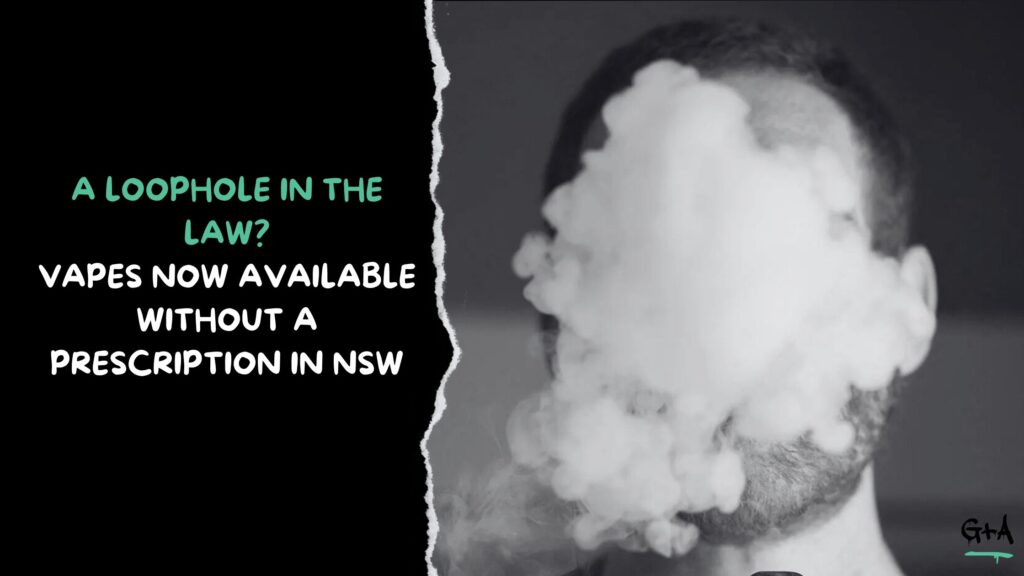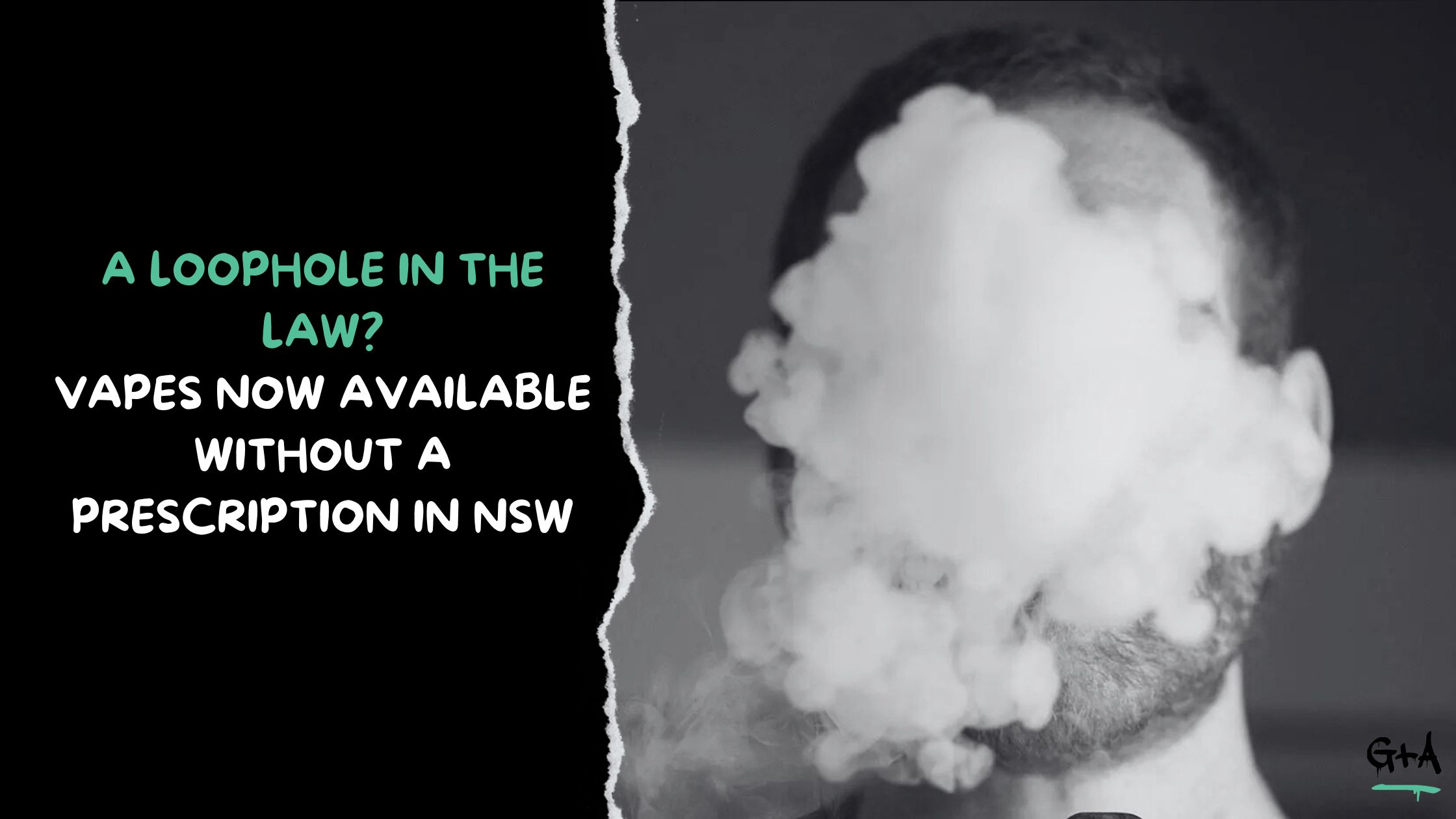In a move that has left many scratching their heads, vapes can now be purchased without a prescription in New South Wales—but there’s a catch. Despite previous laws requiring a prescription for nicotine vapes, recent changes mean that these products are available over the counter at chemists, turning the state’s stance on vaping into a hazy grey area.
The shift has raised questions about whether this is a step toward better regulation or just another way for loopholes to be exploited. For those who have relied on vaping as an alternative to cigarettes, the change could be seen as a breath of fresh air. But for others, it’s yet another example of muddled messaging in a space where health and legal standards should be clear.
A Gray Area or a Smokescreen?
The sale of vapes in Australia has always been subject to heavy regulation, with nicotine vapes requiring a prescription for purchase. Yet, as of late, chemists in NSW are now able to stock non-nicotine vaping products without a prescription, blurring the lines between what is and isn’t allowed. This development comes after years of government crackdowns on the unregulated sale of nicotine vapes, many of which were available in convenience stores and online despite the rules.
Critics argue that allowing vapes to be sold at chemists could undermine years of public health efforts aimed at curbing nicotine addiction. Others claim that it’s a practical step, recognising the demand for these products and ensuring their availability in a controlled environment rather than the black market. But is it really a controlled environment, or are we just seeing a shift in who profits?
For the Consumer, by the Consumer?
Supporters of the change claim that allowing chemists to sell vapes could provide safer access for those who want to quit smoking. In theory, consumers are better served when they have more regulated options available to them. But in practice, this policy shift could open the door to potential misuse and further muddy the waters around who should have access to vapes—and who shouldn’t.
For now, customers hoping to get their hands on nicotine products will still need a prescription, but the non-nicotine market is growing. And with growing markets come new challenges: questions of safety, regulation, and the influence of big players in the pharmaceutical and retail industries. As vaping continues to be a hot topic in the realms of public health and politics, NSW’s latest move might have set the stage for a larger national conversation about the future of vaping in Australia.
Where Does This Leave the Law?
The intersection between health policy and personal freedom has never been simple, and NSW’s approach to vaping is no exception. As the rules evolve, so too does the question of whether regulation is keeping pace with reality. Are chemists now caught in a legal tightrope, or is this a chance for consumers to benefit from a more practical solution to an age-old problem?
For now, vapers in NSW have newfound access to their products, but with access comes responsibility—and a whole lot of questions. Whether this change leads to better outcomes for the state or simply fuels more debate is a question that will likely linger long after the vapour clears.





